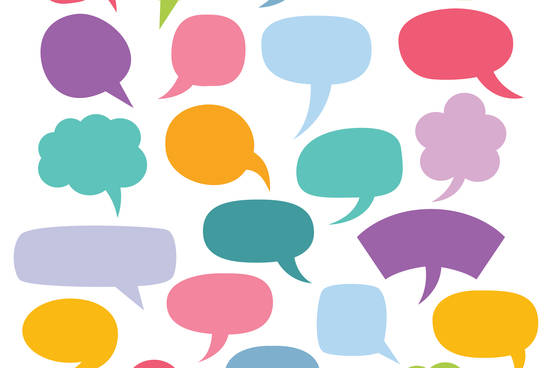
Literally
This is literally the first word that comes to mind for many people, when asked what word or usage is most vexatious. The bothersome sense is the one we define as “in effect; virtually —used in an exaggerated way to emphasize a statement or description that is not literally true or possible.”
We do not offer this definition as a practical joke, or because we want to hurt you; we are trying to provide an accurate record of the English language, as it is used. If you wish to read more about this you may do so here.
What is the point of words having meanings if they can mean literally the opposite of what they are defined to mean? People who use the word litterally to mean not literally aren't using an alternative meaning, they're using the word incorrectly. MW seems intent on ensuring that no matter how wrong you are you're still right.
— Comment on literally definition by J. P., 2020

Incentivize
Words ending in -ize have been acting as a linguistic itching powder for a very long time. We appear to be selective in our disapproval; materialize and summarize bother no one, while finalize and incentivize cause considerable anger.
"Incentivize" as well as those other noun-->verb neologisms is not a real word. It is aohorrent. It makes me sad and angry when I hear it.
— Comment on incentivize by J. J., 2018

Like
Like is an intergenerational usage peeve; your parents (or grandparents) can bemoan its use as a conjunction, and the younger set can howl about its use as an approximative adverb, or as a quotative compartmentalizer. If you would like to read something that will allow you to bond with your older (or younger) relatives you may do so here.
The interjectory use is contradictory and used too frequently.
— Comment on like definition by L. S., 2014

Irregardless
Yes, it is a real word. No, we did not just enter it (it’s been in our dictionary for a long time). Yes, all the other dictionaries define this word. No, you do not have to use it if you do not want to. If you would like to read about why we define this word you may do so here. If you would like to see some of the citations we have illustrating its use you may do so here.
Thanks for ruining my whole life.
— Comment on irregardless definition by J. S., 2020
The rumpus over conversate (“to converse”) is fairly recent, at least when compared to the word itself (it’s been around for over 200 years). If you would like to learn more about the word that bridges Notorious B.I.G. and Archibald Loudon (author of the 1811 A Selection of Some of the Most Interesting Narratives) you may do so here.
No matter what Merriam-Webster says, "conversate" is not a word. I've only heard it come from the mouths of idiots.
— Comment on conversate definition by R. F., 2019

Impact & Impactful
Impact is often viewed as not being a verb, despite the fact that people have been using it as one since the 16th century. If this tickles your fancy you may read more about this here. If your tastes run more towards denigrating the use of impactful you may find out more about this word here.
It a disgusting beast, and you said nothing? Where´s the usage panel?
— Comment on impactful by R. C., 2019

Sentence Initial And
In spite of the fact that writers have been beginning sentences with the word and for well over a thousand years, this is seen as unseemly by many people. If you would like to read about other words which might cause a disturbance when placed at the beginning of a sentence you may do so here.
I have noted that many current day authors are consistently using "and" to start a sentence.
— Comment by B. R. R., 2016

Comprise
Some people like to use comprised of, and others like to tell them that this is incorrect. Others still find the whole thing hopelessly muddled, and so simply avoid the word. If you would like to un-muddle this matter you may do so by reading this.
Watch that (incorrect) use of "comprised of," people; it's all over the place!
— Comment by L. C., 2016

Firstly
There have been numerous objections to firstly over the years. These include the charge that it is a new addition to the language (wrong), that firstly is a hypercorrection of first (wrong), and that it is longer than first (correct!). If you would like to learn more about firstly, and racy topics such as flat adverbs, you may do so here.
such a stupid word.
— Comment on firstly definition by L. C., 2018

Espresso & Expresso
Aficionados of coffee tend to have strong feelings on the matter what sort of coffee they drink — when you mix these people with those who wax passionate about orthography and throw in a variant spelling or two you have a recipe for highly caffeinated anger. If you would like to learn more about the spelling of this drink you may do so here.
People are awful.
— Comment on expresso by J. W., 2017

Author

OMG
OMG was entered in our dictionary in 2009, a mere 92 years after the first recorded instance of this abbreviation. This inclusion (along with that of entries such as LOL) has occasionally been looked at askance by those who feel that we are abdicating our role as stewards of the language. We’re not; we just want you to be happy (and well-informed). If you would like to learn more about why OMG is in our dictionary you may do so here.
Just can't beleive that acronyms are getting in the dictionary.
— Comment on OMG definition by A. L., 2016

Awesome
Awesome (along with fantastic, wonderful, fabulous, and nice) is a word that has changed its meaning quite a bit. The broadened (some would say diminished) meaning of this word rubs some people the wrong way; if you would like some more of this rubbing you may find it here.
most overused, misused adjective.
— Comment on awesome by M. W., 2013

Enormity
Enormity has been used to mean “so, so big” (not a technical definition) ever since that bounder Thomas Elyot used it thusly in a translation of Plutarch, back in 1532. Almost 500 years of continuous use has not quelled the ire of those who object to the word meaning anything but “an outrageous, improper, vicious, or immoral act.” This matter ignites such passion that it seems likely that we will still be hearing about it 500 years hence. If you would like to learn more about this enormity you may do so here.
Just because you can quote a few famous authors who also misuse this word does not excuse the enormity of legitimising its use as a synonym for magnitude.
— Comment by G. T., 2017

Unique
Once upon a time usage books were quite a bit stricter about which adjectives were gradable and could be modified (such as fine, finer, and finest) and which were not (such as dead). A writer in the early 19th century had a list of almost 100 words which he claimed would “admit of no variation of state.” Most of us feel fine grading our adjectives, but there are still a few which are widely viewed as absolute; among these is unique. If you would like to read about whether something can be very unique (or uniquest) you may do so here.
A school, of all things, described itself as very unique. An old-fashioned type, I do not hold with unique as un usual or rare. Definition 1, the only one of its kind, does not admit of qualifiers.
— Comment on unique by D. B., 2017

Uninterested & Disinterested
Uninterested and disinterested have a degree of semantic overlap that causes anguish to some people, who would prefer that each of these words pick a lane and stay in it. English can be a bit messy sometimes, as evidenced by the fact that disinterested is used both to mean “unbiased” and “not interested” (or “uninterested”). If you would like to learn more about why these words are so often confused you may do so here.
This is WRONG! Disinterested means being objective and not having a personal stake in the outcome of something. A judge or juror must be disinterested or he must recuse himself. Likewise an umpire or referee at a sports event. The person who made this def up probably spells "a lot" as "alot" and calls a coupon a "keeyoupon." It is sad when a good word in the language gets perverted in a dictionary just because so many people misuse it.
— Comment on disinterested definition by N. D., 2011

Fewer & Less
The traditional view is that less applies to matters of degree, value, or amount and modifies collective nouns, mass nouns, or nouns denoting an abstract whole while fewer applies to matters of number and modifies plural nouns. The apple-cart of traditional view is often upset by people who insist on using the language as they see fit. You may read more about this distinction here.
Let's go ahead and remove "fewer" from the dictionary, because it is no longer commonly used. The word "less" has replaced it everywhere, so why bother keeping it in the dictionary. "Less" is misused in everyday conversations - verbal and digital, grocery store checkout lines, my beloved NPR, my company's training materials, executive VP company-wide messages, and on and on.
— Comment by D. W. on fewer, 2013

Decimate
A strict fidelity to the definitions intended by Roman military commanders of yore may seem like an odd hill to die on, but the people who insist decimate should only mean “to select by lot and kill every tenth man of” are willing to die on this hill. If this is opaque to you read more about it here.
What is going on here? Decimate always meant to reduce something by one tenth. I would prove that point to others using M-W. The definition is now changed to match the incorrect common usage?
— Comment by N. D., 2014

Anyways
We offer three senses of the adverb anyways: “anyhow,” “anywise,” and “to any degree at all.” All three have some usage label (informal, archaic, or dialect). If this is insufficient explanation for why we have chosen to define this word you may find a fuller reasoning here.
Everytime I head someone add an "s" to the end of anyway, I die a little inside.
— Comment by Z. M., 2017

Commentate
Back-formations (“a word formed by subtraction of a real or supposed affix from an already existing longer word”) are another class of word, like those ending in -ize, that are broadly despised. And much like the -ize words we are selective in our disapproval; [homesick]/dictionary/homesick) (from homesickness) and escalate (from escalator) get a pass, while surveil (from surveillance) and commentate (from commentator) attract opprobrium. If you would like to learn more about back-formations you may do so here.
It sounds stupid. Why not just comment?
— Comment on commentate definition by S. C., 2016






